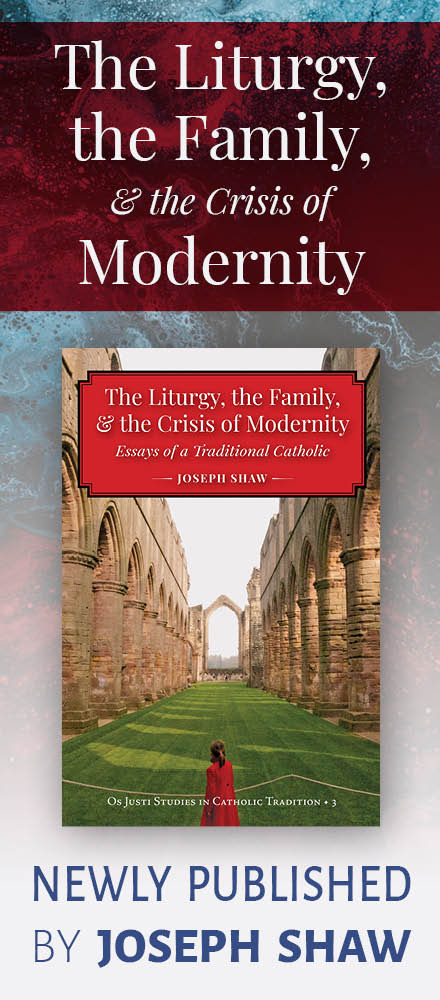Lost in Translation #120
As we saw last week, the Offertory prayer In spiritu humilitatis contains the verse “In the spirit of humility and with a contrite heart may we be accepted by Thee.” (Dan. 3, 39) A contrite heart is a recurring theme in the Sacred Scriptures, but the terms to describe it are not always the same. In the Old Testament, the most common noun is indeed “heart,” the Hebrew lêḇ. [1] There are, however, exceptions. Even though Isaiah uses lêḇ on one occasion (61, 1), he seems to prefer “spirit” or ruah (57, 15; 65, 14; 66, 2). And with the choice of adjective, there is even less consistency; contrition is signified in the Hebrew Bible by a number of different words that mean either “broken” or “crushed.”
The Prayer of Azariah and the Canticle of the Three Youths, (Dan. 3, 24-90) are a
Deuterocanonical addition to the Fiery Furnace episode in the Book of Daniel, and thus our only manuscripts of it are in Greek. Daniel 3, 39 in the Septuagint is:
ἐν ψυχῇ συντετριμμένῃ και πνεύματι τεταπεινωμένῳ προσδεχθείημεν
Which I translate as:
In a contrite soul and a humbled spirit may we be welcomed.
Regarding “contrite soul:”
psyche is the Greek for soul, and the verb
syntribō means to fracture or crush; its Latin equivalent is
contero, from which “contrite” is derived. As for “humbled spirit,”
pneuma is the Greek for spirit and the verb
tapeinoō means to humble or bring low.
The Vulgate translation is:
in animo contrito et spiritu humilitatis suscipiamur.
Which the Douay Rheims translates as:
in a contrite heart and humble spirit let us be accepted.
Animus is a fine choice for
psyche, for animus can mean “soul.” And “heart” is a fine choice for
animus, since
animus can also mean “heart” or “character.”
The concept of a contrite soul as a good thing would have struck the ancient philosophers as odd at best. Instead of having a contrite soul (contritus animus), Aristotle commended having a great soul (magnus animus), and he described the magnanimous or great-souled man as the man who thinks he deserves great things and is correct. [2] I have always found this definition mildly amusing, for it implies that all of us think that we deserve great things; the magnanimous man is the one who just happens to be right.
But feeling entitled to great things hardly sounds like a recipe for contrition. Indeed, it is only by reconfiguring this sense of entitlement or worth that Christian authors were able to reconcile magnanimity and humility. “Magnanimity makes a man deem himself worthy of great things,” Aquinas writes, but only “in consideration of the gifts he holds from God.” [3] When man (rightly) credits his greatness to God, the focus shifts from self-congratulation—which is actually rather petty and stagnating—to the more dynamic and admirable pursuit of great things. With this new understanding in mind, Aquinas can go on to argue that humility and magnanimity are not only compatible but that they are twin virtues: humility is the well-ordered pursuit of excellence, while magnanimity is the well-ordered urging on of the soul to pursue excellence and not fall into despair. [4] 
Contrition fits within this framework, for it can be understood as a sense of regret for misusing the gifts of God while not abandoning the desire for greatness. Humility requires that we hold on both to regret and to the pursuit of excellence. For regret uncoupled from the desire for greatness is despair; and the desire for greatness uncoupled from regret is pride and delusion, since as sinners we all have something to regret. “It is one thing to rise up to God,” Saint Augustine preached, “and another to rise up against Him.” The paradox in Christianity is that we rise up to God (Supreme Greatness) by lowering ourselves. “He who prostrates himself before Him is lifted up,” Augustine continues. “He who rises up against Him is prostrated.” [5]
And with respect to the Offertory prayers, we may say that all of this is implied in the In spiritu humilitatis and enacted in the rubrics. For when the priest prays the In spiritu humilitatis he is prostrate or bowed down, and when he is finished, the first thing he does is to stand erect and look upward, from which come all great things.Notes
[1] See Ps. 33, 19 [34, 18]; 50, 19 [51, 17]; 68, 21 [69, 20]; 146, 3 [147, 3]; Jer. 23, 9.
[2] See Nicomachean Ethics IV.3.
[3] Summa Theologiae II-II.129.3.ad 4.
[4] ST II-II.161.1.resp. and ad 3.
[5] Sermon 351, 1.

_-_Fiery_furnace_01.jpg)





















